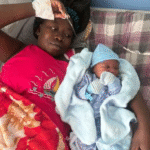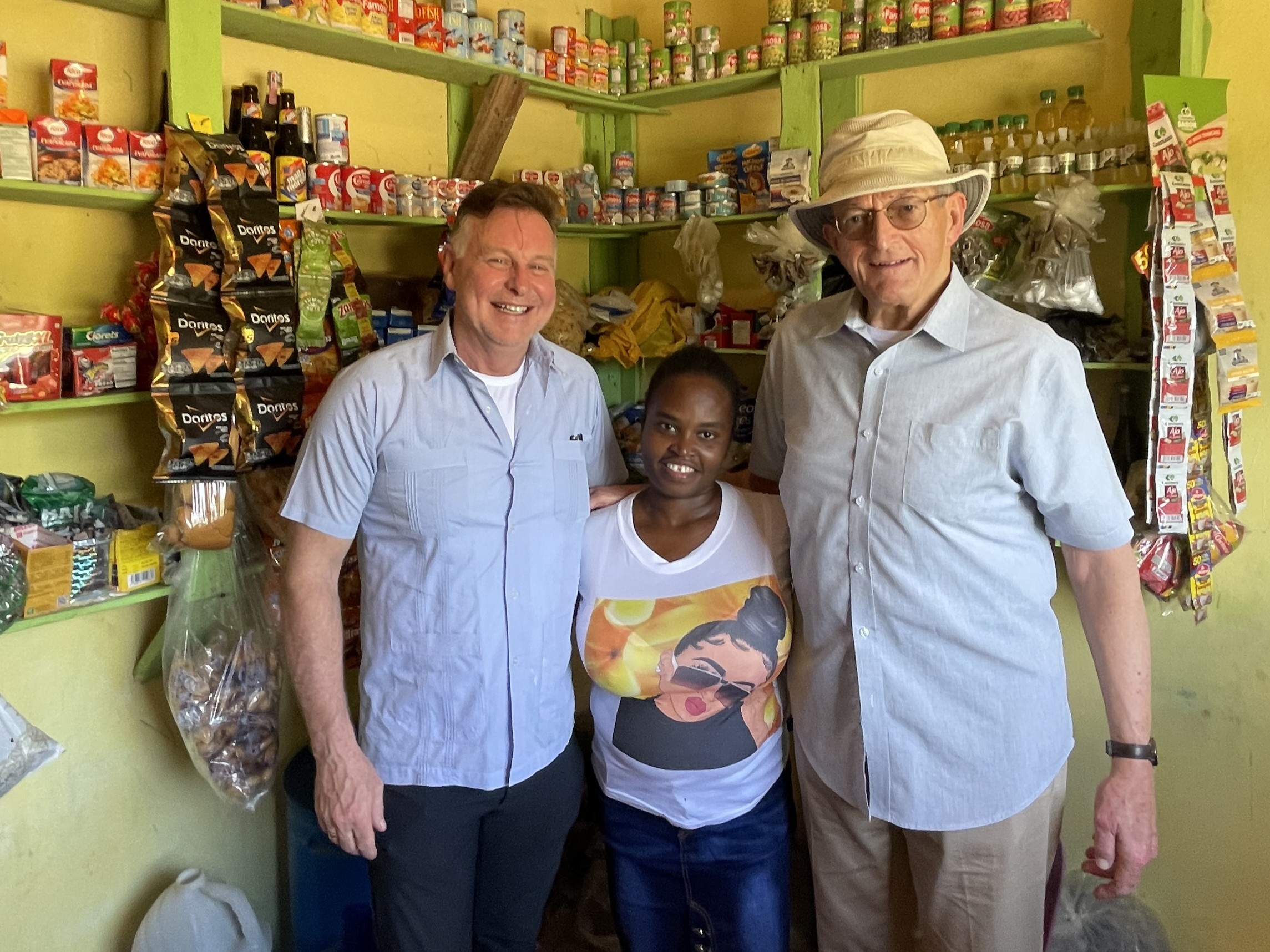
Planning for birth in the batey
October 20, 2025 Bridging Miami with Consuelo: Rostro de Cristo board member Randy McGrorty shares his experience and reflections on Rostro de Cristo’s new initiative in the DR.
Bridging Miami with Consuelo: Rostro de Cristo board member Randy McGrorty shares his experience and reflections on Rostro de Cristo’s new initiative in the DR.
During a research trip to the Dominican Republic in 2022, an American diplomat told RdC board member Randy McGrorty that Haitian migrants in the DR, along with Dominicans of Haitian descent, were likely the most marginalized group in the Western Hemisphere. The word margin means the edge—the last sliver of space still inside the boundary. In the DR, Haitians and their descendants are forced to live at this edge: present but excluded, surviving within the country yet denied stability and belonging. Every day, they face the risk of losing everything.
Randy knows intimately what these migrants have already left behind. As Executive Director of Catholic Legal Services at the Archdiocese of Miami, he began his career working with Haitians fleeing persecution after a 1990s military coup ousted Haiti’s first democratically elected president. Thousands fled by boat; many were intercepted by the U.S. military and detained at Guantánamo Bay, where they were screened for asylum. Through a program run by the U.S. Conference of Catholic Bishops, these Haitian refugees were resettled in Miami. Randy was among the attorneys who represented them, forging deep bonds with the Haitian diaspora and beginning a lifelong commitment to accompany migrants in their struggle for dignity.
This commitment is what Randy sees reflected in Rostro’s transition to a professional fellowship model in partnership with ASCALA. Just as his own work began in what today would be called a fellowship, he believes that moving to a more professional model is both faithful to RdC’s mission and responsive to a generational shift. “People are more focused on creating a path to somewhere, to some specific outcome,” he explained. “They don’t want to do something undefined. We can create a lifelong commitment to faith that works for justice among young professionals just as we did among volunteer recent graduates.” For Randy, solidarity remains at the heart of the mission; what changes is the way new generations live it out.
His perspective also illuminates why Americans should pay attention to the treatment of Haitians and Dominicans of Haitian descent in the DR. For generations, the Dominican Republic granted birthright citizenship to anyone born on its soil. But in 2010, the government stripped citizenship from people of Haitian descent going back two generations—rendering tens of thousands stateless. Today, the United States is debating similar proposals to end birthright citizenship. Randy warns that the DR’s harsh treatment of Haitians—conditions so oppressive that migrants sometimes return to places they once fled in fear—may foreshadow policies in our own country.
For RdC, this is precisely where its mission must lead: to be with those who are pushed to the margins, whether in the Dominican Republic or beyond. In walking alongside migrants, we not only share in their struggle but also expand the space they are allowed to occupy. Solidarity pulls people back from the edge toward the center, toward the safety and dignity God desires for every human person.



